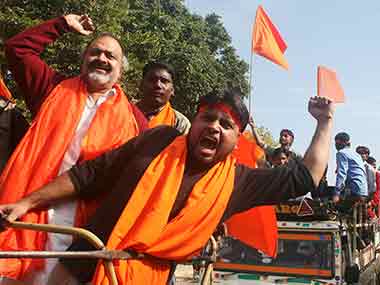The Sangh Parivar wants a law to ban forcible conversion. It sounds fine in principle, so there should be no objection to it. But there is a catch. If at all a law against such kind comes into being, will it freeze the status quo that exists among several religious communities at a precise point – say, from the day the law is cleared - or it will be operational with retrospective effect? The answers to these questions are critical in view of the evolving dynamics in the communal equations in the country. If the status quo is maintained it means inter-religious migration - the core of the whole conversion controversy - comes to a halt. Thus the number of people who were Hindus remain Hindus, Christians remain Christians and it’s same with all other religious communities. Fair enough. Unless there’s a full stop to this practice of poaching, either through enticement or force, the relationship among followers of religions will continue to be tense. That such legislation would curb the freedom of a person to escape a religion he finds oppressive, is an important dimension to the matter. But let’s ignore it. [caption id=“attachment_1994351” align=“alignleft” width=“380”]  Representational image. Reuters[/caption] Now, let’s bring in the reconversion exercise as perceived by the Sangh Parivar and check whether it is compatible with the proposed law. All the outfits of the great extended Hindutva joint family have been openly proclaiming that almost the entire Muslim and Christian population in the country are Hindus by ancestral origin. At some point in history their ancestors were forced to change religion. So their current religious existence is a lie. Similar is the case with tribals and Dalits converting to other religions in recent times. This argument, they feel, makes the reconversion exercise justifiable and acceptable. “Those who lost their way were separated from us. They did not go on their own. They were robbed, tempted into leaving. If they want to return home we will bring them back,’’ said RSS chief Mohan Bhagwat in Kolkata on Saturday. Pravin Togadia, the working president of the Vishwa Hindu Parishad, said recently that the ancestors of both Christians and Muslims were Hindus. So there was no problem in accepting them back. BJP’s parliamentarian from Gorakpur, Yogi Adityanath, says reconversion is an ongoing process and it won’t stop. In Kerala, 30 people from eight Scheduled Caste Christian families converted to Hinduism on Sunday. The VHP claimed the families had undergone conversion on their own free will. All the VHP did was to “facilitate the return.” The VHP came under fire from the Congress and other opposition parties after more than 200 tribal Christians were converted to Hinduism in Gujarat. None of the Sangh Parivar outfits would utter the ‘C’ word though, they would prefer to call the exercise ghar wapasi (home coming) instead. It’s more palatable for the ordinary masses and legally less cumbersome. Logically, once the law stopping conversions comes into existence ghar wapasi should stop too. Would the Hindutva activists stop their reconversion programme, by whatever name it goes, and let existing Christians remain Christians and Muslims as Muslims? Fat chance. The law, if it’s fair to all, won’t fit into their long-term design of bringing all ‘strayed’ Hindus back to the fold. It would require to be customized to serve their agenda. The Raman Singh-led government in Chhattisgarh has found a solution tailormade for the purpose. It makes all conversion illegal but leaves a window open for re-conversions. While the former would attract police and legal action, in case of the latter there’s no such worry. When the BJP and other members of the Sangh demand a law, do they expect it to be fair? If it promises to be fair, should other political parties have any objection to it? The answer is not simple. That should bring the advocates of a legal provision to stop conversion to the real issue: the circumstances that make people change their religion. In tribal areas – tribals are in any case outsiders in the Hindu varna scheme - missionaries have tapped into the weaknesses of the government delivery system, particularly in the areas of health and education, to find new converts. Among the Dalits it is a case of lack of respect or scope for mobility, economic and social, within the iron-clad hierarchy of castes. The Sangh Parivar would be in more agreeable light if it focuses on reasons why people shift to other religions, inviting the great risk of being socially ostracized. An unfair law can only have dangerous consequences.
The Sangh Parivar would be in more agreeable light if it focuses on reasons why people shift to other religions, inviting the great risk of being socially ostracized.
Advertisement
End of Article


)
)
)
)
)
)
)
)
)



